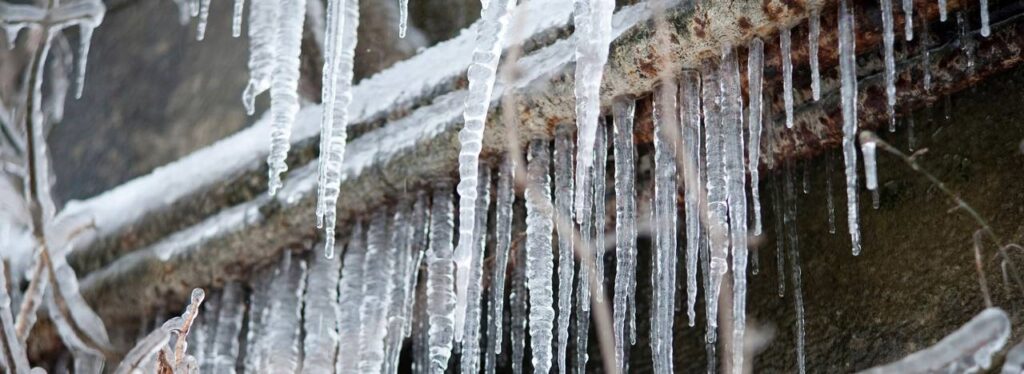Tips to Keep Your Pipes from Cold Weather Issues: Crucial Advice
Tips to Keep Your Pipes from Cold Weather Issues: Crucial Advice
Blog Article
What are your thoughts on How to prepare your home plumbing for winter weather?

Cold weather can wreak havoc on your plumbing, especially by freezing pipelines. Right here's just how to stop it from taking place and what to do if it does.
Intro
As temperature levels decline, the threat of icy pipelines boosts, potentially causing expensive repair work and water damage. Comprehending how to stop icy pipes is important for property owners in cold environments.
Comprehending Frozen Pipelines
What triggers pipes to ice up?
Pipes ice up when subjected to temperatures listed below 32 ° F (0 ° C) for extended durations. As water inside the pipes ices up, it broadens, taxing the pipe wall surfaces and potentially creating them to burst.
Threats and damages
Frozen pipelines can result in water disruptions, building damage, and costly fixings. Burst pipes can flood homes and create considerable structural damage.
Signs of Frozen Water Lines
Identifying frozen pipelines early can prevent them from bursting.
Just how to recognize frozen pipelines
Try to find lowered water flow from faucets, uncommon smells or noises from pipes, and noticeable frost on revealed pipes.
Prevention Tips
Insulating at risk pipes
Wrap pipelines in insulation sleeves or use heat tape to secure them from freezing temperatures. Concentrate on pipes in unheated or exterior locations of the home.
Home heating methods
Maintain interior rooms appropriately heated, specifically areas with plumbing. Open up cabinet doors to enable cozy air to circulate around pipes under sinks.
Securing Exterior Plumbing
Garden pipes and exterior taps
Disconnect and drain garden pipes prior to winter. Install frost-proof spigots or cover outside faucets with shielded caps.
What to Do If Your Pipes Freeze
Immediate activities to take
If you think icy pipelines, keep taps open to soothe pressure as the ice thaws. Use a hairdryer or towels taken in hot water to thaw pipelines gradually.
Long-Term Solutions
Structural changes
Consider rerouting pipes far from exterior wall surfaces or unheated locations. Include added insulation to attic rooms, cellars, and crawl spaces.
Updating insulation
Invest in high-grade insulation for pipes, attics, and walls. Appropriate insulation aids keep constant temperature levels and reduces the threat of frozen pipes.
Conclusion
Avoiding icy pipes calls for proactive measures and quick feedbacks. By comprehending the reasons, indicators, and preventive measures, homeowners can safeguard their pipes throughout winter.
Helpful Tips to Prevent Frozen Pipes this Winter
UNDERSTANDING THE BASICS: WHY PIPES FREEZE AND WHY IT’S A PROBLEM
Water freezing inside pipes is common during the winter months, but understanding why pipes freeze, and the potential problems it can cause is crucial in preventing such incidents. This section will delve into the basics of why pipes freeze and the associated problems that may arise.
THE SCIENCE BEHIND FROZEN PIPES
When water reaches freezing temperatures, it undergoes a physical transformation and solidifies into ice. This expansion of water as it freezes is the primary reason pipes can burst. As the water inside the pipe freezes, it expands, creating immense pressure on the walls. If the pressure becomes too great, the pipe can crack or rupture, leading to leaks and water damage.
FACTORS THAT CONTRIBUTE TO PIPE FREEZING
Low Temperatures: Extremely cold weather, especially below freezing, increases the risk of pipes freezing. Uninsulated or Poorly Insulated Pipes: Pipes located in unheated areas, such as basements, crawl spaces, or attics, are more prone to freezing. Insufficient insulation or lack of insulation altogether exacerbates the problem. Exterior Wall Exposure: Pipes running along exterior walls are susceptible to freezing as they encounter colder temperatures outside. Lack of Heating or Temperature Regulation: Inadequate heating or inconsistent temperature control in your home can contribute to frozen pipes. PROBLEMS CAUSED BY FROZEN PIPES
- Pipe Bursting: As mentioned earlier, the expansion of water as it freezes can cause pipes to burst, resulting in significant water damage.
- Water Damage: When pipes burst, it can lead to flooding and water damage to your property, including walls, ceilings, flooring, and personal belongings.
- Structural Damage: Prolonged exposure to water from burst pipes can compromise the structural integrity of your home, leading to costly repairs.
- Mold and Mildew Growth: Excess moisture from water damage can create a favorable environment for mold and mildew growth, posing health risks to occupants.
- Disrupted Water Supply: Frozen pipes can also result in a complete or partial loss of water supply until the issue is resolved.
WHY CERTAIN PIPES ARE MORE PRONE TO FREEZING
- Location: Pipes located in unheated or poorly insulated areas, such as basements, crawl spaces, attics, or exterior walls, are at higher risk of freezing.
- Exterior Pipes: Outdoor pipes, such as those used for irrigation or exposed plumbing, are particularly vulnerable to freezing as they are directly exposed to the elements.
- Supply Lines: Pipes that carry water from the main water supply into your home, including the main water line, are critical to protect as freezing in these lines can affect your entire plumbing system.
- Underground Pipes: Pipes buried underground, such as those connected to sprinkler systems or outdoor faucets, can be susceptible to freezing if not properly insulated.
https://busybusy.com/blog/helpful-tips-to-prevent-frozen-pipes-this-winter/

I found that content on 6 Ways to Prevent Frozen Pipes while surfing the search engines. Do you know anybody else who is sincerely interested in the subject? Please feel free to share it. Thank-you for going through it.
Schedule Now! Report this page